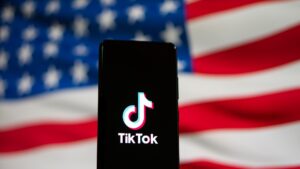[ad_1]
Marketing channels and the teams managing them should be constantly collaborating and avoiding operating within silos. But it’s easier said than done sometimes.
One partnership that commonly gets overlooked is between SEO and social media teams – both organic and paid – and how they can collaborate to maximize output, performance, ROI and, most importantly, customer connections.
There’s so much each channel can offer the other. All this typically becomes apparent via performance once that connection is made and a partnership starts.
Here are 13 ways SEO and social media teams can work together to produce enhanced results:
1. Synergy
Team synergy goes a long way in everything you do, especially when trying to speak to a brand’s intended audience.
Consistent messaging, language and perspective in all marketing initiatives help achieve goals the larger team is working towards accomplishing (assuming those teams are on the same page).
Voice and tone, keyword usage and general branding should be consistent, and collaboration as SEOs and social media managers is an easy (and relatively low-cost) way to do it.
Make it a critical objective to meet with your social media or SEO team counterparts to ensure you maximize everything from your image to messaging. This overarching theme is critical to remember with each of the remaining tips for how teams can work together.
2. Keyword targeting
Brands have keywords that represent who they are, what they do, the problems they fix and the products and services they offer. Consistency goes a long way for keywords – and the topics and ideas tied to them – and how they are used. Your audience isn’t naive to those connections. Your audience relies on them.
Intents and other connections tied to keywords and SEO can help social media better understand that.
Use keyword research from SEO best practices to reinforce your social media messaging.
Use your social media audiences and engagements to better understand your customers and the needs that matter to them most.
3. Profile optimization
Keywords go a long way in search and that’s not just for search engines.
People use keywords to search on social media just like they do on search engines. And, while social media algorithms may not be as sophisticated as that of Google, they still offer useful search features that people rely on every day.
That’s why optimizing every one of your business’s social media profiles efficiently is so important.
Social networks have their content indexed in search engines, too.
Yet, properly optimizing a profile goes beyond just keywords.
Ensuring accuracy and consistency of NAP (name of the organization, address and phone number) among the other available entry fields on social platforms helps connect these profiles to the brand and its line of business.
4. Enhanced visibility
Publishing social media content prominently served in search results will increase traffic, engagement and backlinks.
And, with more than 60% of Instagram users claiming they research products and services on the platform before buying, showing up at the right time for those products and services when people may not yet know a brand is critical.
Social media calendars planned out and crafted with SEO infused into them help achieve goals typically tied to branding and engagement. Still, they also can propel quality content to more visibility in organic search.
Strong social signals reinforced by recency and relevancy will also help drive popular and timely social media posts (and the content linked) to the top of relevant search pages when that content satisfies a query.
5. Better planning and content distribution
SEO is typically more likely to work closely with the content team to develop the right topics and keywords to leverage, but what about the social media team?
There is no better team to help distribute quality content to the right people.
There is likely a growing pipeline and cadence for content being planned, created and published; collaborating with social media specialists to get eyes on the content at the right time could make all the difference.
Different people hang out in different places. And your customers are everywhere.
Social media gives us the chance to engage in conversations across a variety of platforms with varying audiences.
SEO helps us know what to talk about, how to say it and what data points are most important. Social media does this in real time. Together, there is massive potential.
Share the quality topics and opinions your brand publishes across social media channels and leverage recency and user behavior signals to compound SEO efforts and reach audience targets at multiple stages.
Get the daily newsletter search marketers rely on.
7. User feedback and social listening
A great way to learn what your audience cares about is by listening.
Brands try customer surveys, mailers and even cold calling to best understand what their current and potential customers think, want and care about.
This data is then built into the marketing strategy and used to guide much of it. But, without social media feedback and insights, a significant part of the strategy will be absent.
People on social media are voicing their mediocre opinions around every corner; businesses should be gobbling that feedback up if it affects their business or their customers in any way.
Listen to your fans and followers. What language is your audience using? Is it in line with internal brand thinking? Are there new keywords trending in the space? Chances are, the social media team can help the SEO team answer many of those questions.
SEO insights (search volume, geographic and demographic details, intent, etc.) on those new keywords would also be useful for the social team to know. Collaborate and capitalize.
Dig deeper: Feedback optimization: A user-first approach to SEO
8. FAQs
FAQ pages can be a gold mine for organic traffic – and for helping users get the answers they need.
And there are not many better ways to ensure you are answering questions that matter than by listening to what people are asking on social media.
They may not always be polite (or even spelled accurately), but there is a lot to be learned from listening to your social media audience.
Are you constantly seeing the same questions being asked over and over? These are indicators that these are the things most important to your audience and you need to do a better job at explaining the answers earlier and more often.
Using organic traffic data in tandem with social media insights, nearly any brand would be able to identify the 10 most important questions customers have regularly.
9. Maximize performance
It’s obvious the ultimate goal of marketing is to improve performance and drive conversions.
SEO and social media collaborating effectively is always going to help achieve this.
Social media profiles and the content they publish benefit from this collaboration for various reasons, but improved traffic and engagement metrics should be expected.
You can also expect an increase in overall traffic flow across various channels and page growth metrics on social media.
The dozen other ways listed in this article for ways to collaborate and leverage social media and SEO together should all aid in achieving maximized performance.
10. Relevancy signals
What you talk about on social media matters in multiple ways.
Repeating themes become connected to your brand through relevancy signals. It’s obviously important to talk about things that matter to your brand (and its customers) while also maintaining a safe distance from sensitive or controversial subjects.
These critical connections across the web are built through branding heavily impacted by SEO initiatives and the business’s day-to-day operations.
If you sell outdoor furniture and talk about outdoor living, furniture materials, seating styles and backyard aesthetics, chances are your audience will not be caught off guard by this and will actually rely on it to inform them in the future.
And when you talk about what you know, your authority shines. SEO’s main goal is to build true authority.
Use social media to compound those authority-building initiatives further. You’ll likely pick up a decent following and probably even have some fun along the way.
11. Partnerships and backlinks
Brands can build relationships with customers and brand allies as individuals, and social media also presents the opportunity to build relationships with other like-minded brands.
This means potentially even collaborating with other brands on products and services and, in turn, acquiring backlinks that will further reinforce those high-quality, industry-relevant connections.
SEO will help identify the most valuable partners. Social media will help make building those connections tremendously easier.
We also know that nofollow links carry their own value within a healthy backlink profile and social media sites build more of these than any other websites by massive quantities.
12. PR and brand reputation
The most commonly overlooked opportunity on social media is the ability to be real and let your brand shine instead of being too buttoned up to do any good.
Too many brands miss the mark in an attempt to be something they aren’t for fear of backlash or rejection.
This should not be seen as a scary situation but rather an opportunity to show who the brand truly is.
SEO is where reputation begins and how it is built. Social media is the vehicle for demonstrating that reputation regularly.
Communicating among these teams regularly keeps the brand aligned and alerted anytime a PR issue or opportunity arises.
Social media offers brands a unique opportunity to engage with customers and mitigate potential damage by remaining socially aware and actively involved in key communities.
Dig deeper: How SEO and digital PR can drive maximum brand visibility
13. Content ideas
This one is the backbone of the best SEO and social media collaborations – and both sides benefit tremendously.
SEO data has long been thorough and useful when identifying what works well and what doesn’t on a website. Social media has been delivering useful data to enhance this for the last several years, and it’s improving every day.
Use as much data as possible to drive decisions that lead to creating good content. Then, use social media to leverage that content.
A lot of SEO data relies on third-party tools and tracking platforms, but social media platforms rely on people and their conversations. If you’re not hearing (or reading) what’s being said, you’re likely missing out on what matters most.
Opinions expressed in this article are those of the guest author and not necessarily Search Engine Land. Staff authors are listed here.
[ad_2]





